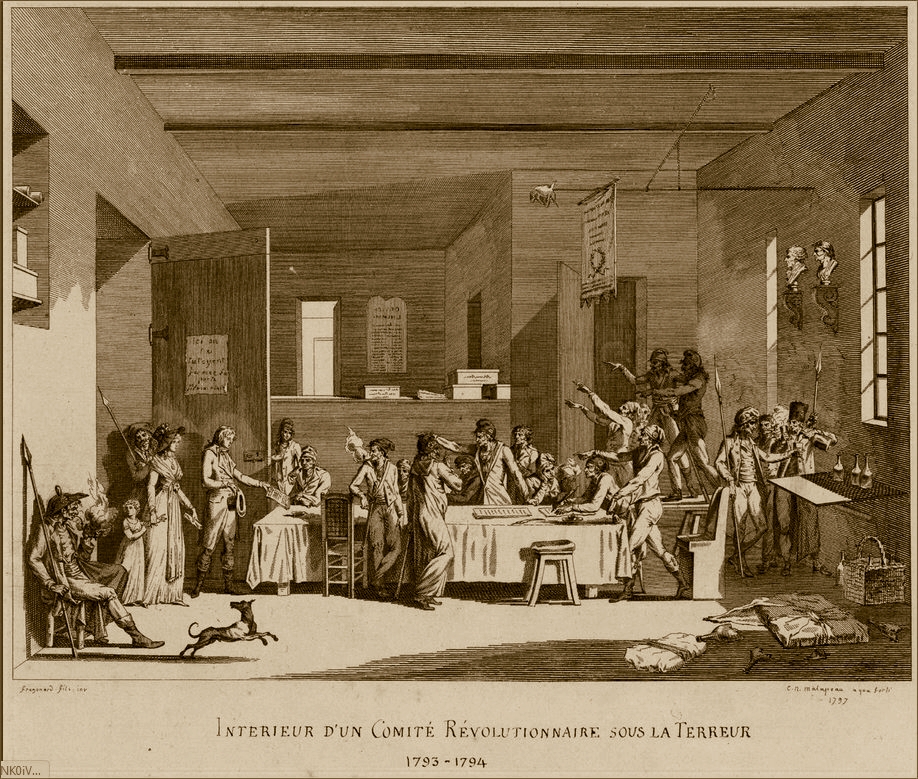 |
| It is important to fight the real enemy, not an imaginary one |
François Hollande declared the attacks on Paris “an act of war that was waged by a terrorist army, a jihadist army, by
Daesh [the Islamic State], against France.” The French president (who was at the soccer game outside which bombs were detonated), has promised that France will wage "pitiless war" against those who conceived and executed the attacks.
Now there's two ways to respond to the Paris attacks - an unthinking violent way, and a smart way. Guess which one is in favour? The influential magazine,
Foreign Policy, puts it very clearly, it sees in the streets of Paris an occasion for
the ruthless application of hard power.
France has already had one outrage - in the senseless killing of a group of the
Charlie Hebdo cartoonists seated around their conference table. The response to that - essentially an attack on free speech - was a new law prohibiting language that the State interpreted as supportive of terrorism. In the days that followed, several hapless French motorists were given life terms in prison for breaching the new rules.
A 34-year-old man who hit a car while drunk, injuring the other driver and goaded the police when they detained him by praising the acts of the Hebdo killers was sentenced to four years in prison. In the following days,
according to Cédric Cabut, a French prosecutor, a good hundred people were investigated or charged with making or posting comments that 'supported terrorism'. Of course, the charges were ridiculous. But the principle of 'free speech' the cartoonists had died for was buried further.
And rather than arrest and carefully dissect the mindset of the terrorists, the government organised a spectacular 'shoot out' with them, which left the media satisfied but the nation deprived of an opportunity for a meaningful investigation into the underlying issues.
And now less that a year on, another and indeed worse tragedy, underlines the failure to learn anything from the first one.
The immediate response was to 'close the borders' - a grand slamming shut of the characteristic French shutters - to stop terrorists getting in or out. This involved several hundred thousand police and army. But it was entirely irrelevant to a terrorist cell made up largely of European (three were from Brussels!), indeed, French, nationals.
So let me tentatively and in a spirit of solidarity, offer the French authorities some more 'analytical' six ideas on behalf of the ordinary people of France - not the government or the security forces - who were the chosen targets as well as the victims in both attacks.
1. There is no way to stop small groups of people killing ordinary citizens. You can protect your elites, but cannot protect the vast majority. Thus the real battle is for minds and hearts.
"A 242-ship Navy will not stop one motivated murderous fanatic from emptying the clip of an AK-47 into the windows of a crowded restaurant."
2. It follows from this that the security services must work under and for the people, not on top of and against them, as has always been the case in France. The most egregious example of what happens when the security services operate in isolation from the people came in the Second World War when the gendarmerie rounded up Jews for transportation to the Nazi death camps.
3. Instead of these 'muscular' reasons - immediately proffered again by the French politicians - there should be an intelligent response, both in terms of social policy and in terms of security. Suspicious individuals, of whom for example returned jihadis are an obvious and entirely manageable group, should be individually watched and their activities curtailed. Policies directed against the 60 million French people - such as closing the borders, searching all vehicles etc etc - are not only an abuse of power but a waste of resources.
4. The French State needs to respect citizens of all religious persuasions. It simply won't do, for example, to impose pork on Muslims (or Jews, or indeed vegetarians) in school canteens, nor is there any rational argument for opposing the wearing of headscarves. Face-obscuring garments I think are in a different category. There is a tendency to seek the erasure of religion today rather than the freedom of religion. At the same time, radical Islam itself seems to advance by encroaching on the laws of a nation. It expands its ‘territory’, where other religions focus on heart.
5. Part of the State's obligations to all its constituent groups is to ensure equality of opportunity - and to actively combat inequality. It is in the swamps of the sprawling suburbs of the cities, that the Hebdo killers festered. Jihadis are by no means explained as simply frustrated workers, but on the other hand, their twisted senses of grievance are fuelled by the extremes they see in life around them.
6. The militarisation of the police and the frequent use of the army by the French State creates inevitably a response, and the people who suffer most, as we have seen now, are the weakest and most defenceless. It is thus shameful to hear the drum beating and the clamouring for more 'resources' from the security services that have so clearly let down their citizens.
Europe needs to think outside the box, not only about war but about
peace. I sense that it needs fundamentally new ideas, even mindsets,
and an openness to new ideas without its obsession to preserve what it
has, or idolises.
But there's one other practical step that can be taken. Stop propping up the anti-democratic regimes in the Gulf States. The ones behind 9/11, and many other atrocities worldwide - and now the new horror in Paris.




